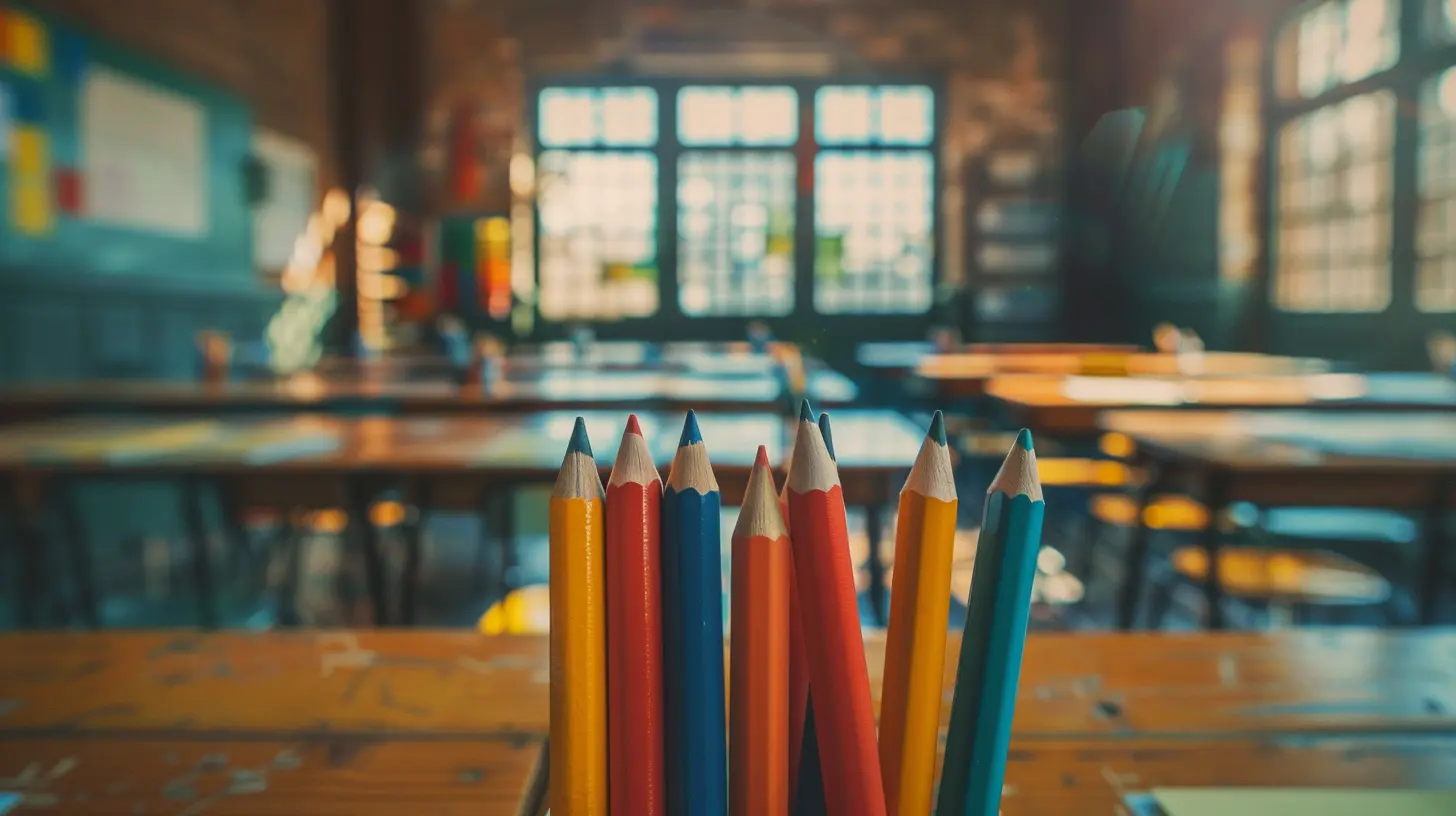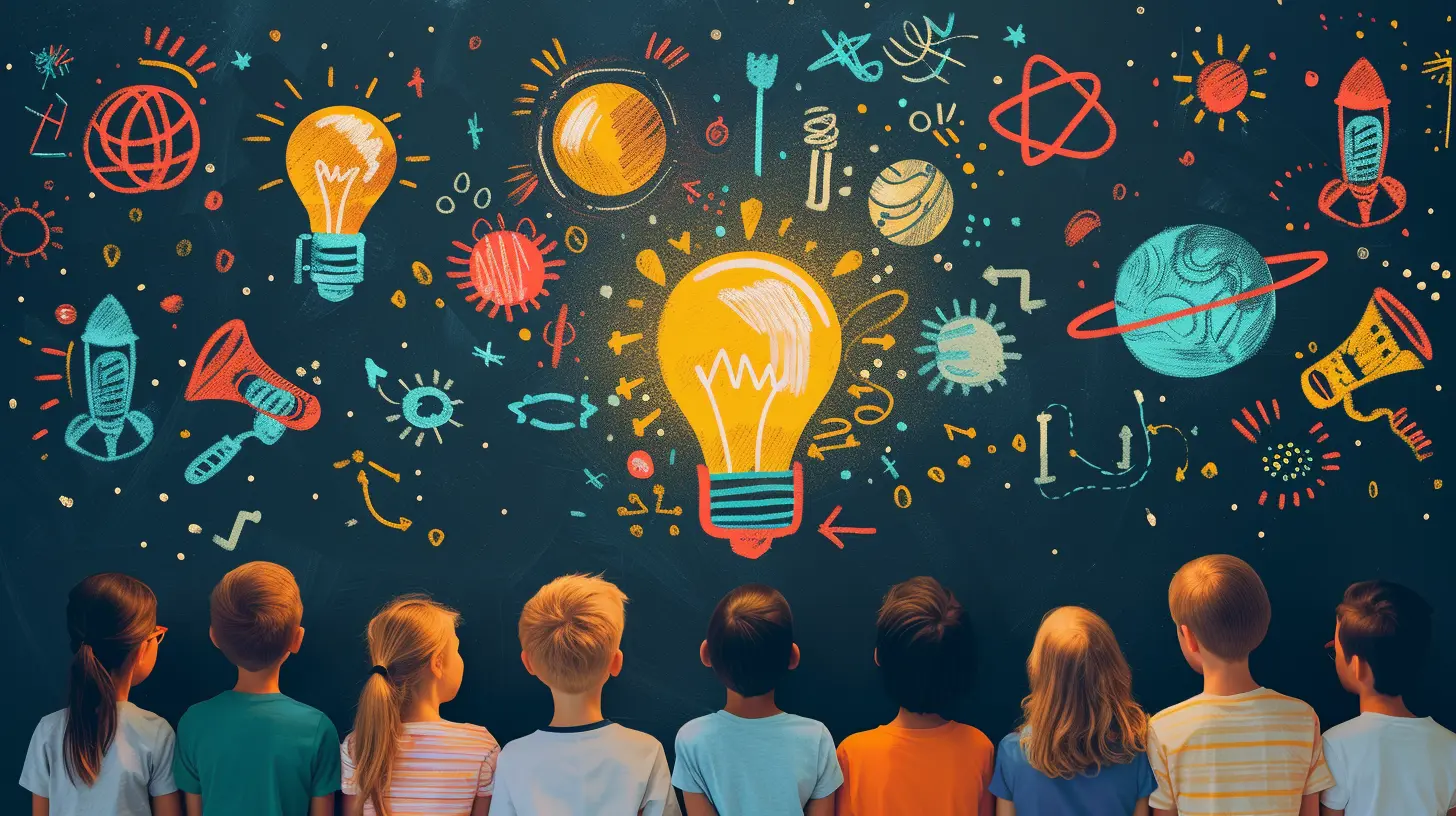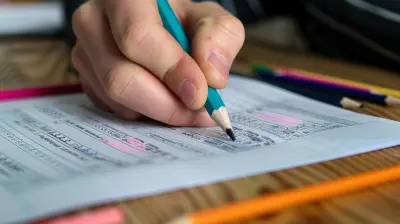The Future of Assessments: Moving Beyond Standardized Tests
10 August 2025
Standardized tests have been the backbone of educational assessments for decades. But let’s be honest—how many of us really believe they paint an accurate picture of a student's true abilities? The truth is, our world is changing, and the way we evaluate knowledge should evolve too.
Imagine trying to measure an artist's talent with a math test or a programmer’s problem-solving skills with a history exam. Sounds ridiculous, right? Yet, that’s exactly what standardized tests often do—put everyone in the same box, regardless of their strengths.
It’s time for a shift. Let’s dive into the future of assessments and explore how education can move beyond standardized tests.

Why Standardized Tests Fall Short
Before we talk about the future, let’s break down why standardized testing isn't cutting it anymore.One-Size-Fits-All Doesn’t Work
Standardized tests assume that all students learn the same way. But in reality, we all have different learning styles. Some students excel in hands-on activities, while others thrive in creative storytelling or group discussions. So why are we still assessing them with the same outdated methods?Test Anxiety: A Real Problem
For many students, standardized tests create stress instead of measuring knowledge. Picture this: A student who understands math perfectly freezes up on test day and scores poorly—not because they don’t know the material, but because their anxiety takes over. Should that one test define their abilities? Absolutely not.Rote Memorization Over Real Learning
Standardized exams often focus on memorization rather than real-world application. The problem? Students might pass the test, but they forget the information shortly afterward. What good is that? Education should encourage critical thinking and problem-solving, not just short-term cramming.
The Future of Assessments: Smarter, More Personalized Evaluations
Now for the good stuff—how can we assess students in a way that actually reflects what they know and can do?1. Project-Based Learning (PBL)
Instead of bubbling in multiple-choice answers, students could showcase their skills through real-world projects. For example:- A science student could design an experiment and explain their findings.
- A history student could create a documentary instead of writing an essay.
- A business student could launch a mock startup and present a business plan.
This approach not only tests knowledge but also builds critical skills like teamwork, creativity, and communication.
2. Performance-Based Assessments
Why not evaluate students based on how they apply knowledge in practical settings? Think about it—athletes don’t just take written tests to prove their skills. They play the game. Likewise, students could be assessed through oral presentations, coding challenges, or problem-solving scenarios.3. Adaptive Learning Technologies
AI-driven assessments are changing the game. These tools personalize tests based on a student's strengths and weaknesses. Instead of presenting the same static questions to everyone, adaptive assessments adjust in real-time, offering a tailored learning experience.4. E-Portfolios
Imagine a digital portfolio where students could showcase their achievements over time—projects, research papers, creative works, and even community service initiatives. Instead of a single test score defining their academic journey, an evolving portfolio could highlight their holistic growth.5. Gamification in Assessments
Who says assessments need to be boring? Gamified learning platforms turn knowledge checks into engaging challenges. Think of platforms like Kahoot! or Duolingo, where students earn rewards for progress. Adding an element of fun makes learning (and testing) something students actually look forward to.6. Peer and Self-Assessments
Students should also have a say in their learning journey. Peer assessments encourage collaboration and constructive feedback, while self-assessments help students reflect on their own progress. This method builds accountability and helps learners recognize their strengths and areas for growth.
How Will These Changes Impact Education?
More Accurate Reflection of Skills
Alternative assessments provide a more well-rounded picture of a student’s abilities. Instead of focusing on a single test score, education can highlight critical thinking, creativity, and real-world problem-solving.Less Stress, More Learning
Moving away from high-stakes testing reduces unnecessary pressure. Without the looming fear of a single test determining success, students can focus on understanding concepts rather than just memorizing them.Encouraging Lifelong Learning
By integrating project-based work, gamification, and adaptive learning, education becomes something students enjoy—not just something they endure. Learning shouldn't stop after graduation; it should be an ongoing, engaging process.
Challenges in Implementing New Assessment Methods
So, why hasn’t this shift happened yet? Well, change isn’t always easy.Resistance to Change
Many educators and institutions are used to the traditional model and might resist reform. Standardized tests are entrenched in college admissions, funding systems, and school rankings, making them difficult to replace overnight.Need for Teacher Training
Teachers need proper training to implement these new assessment methods effectively. Without the right tools and guidance, making the transition can be overwhelming.Technology Gaps
Not all schools have access to high-tech assessment tools. Inequities in educational technology could create gaps where some students benefit from modern evaluation methods while others are left behind.The Road Ahead: How Can We Make It Happen?
If we want to see real change in educational assessments, it starts with awareness and action.- Policy Reform: Schools and policymakers need to recognize the downsides of standardized tests and push for more diverse assessment methods.
- Investment in Technology: More funding for digital learning tools can help level the playing field.
- Teacher Support & Training: Educators must be equipped with the right skills to implement these new methods successfully.
- Parental and Student Advocacy: Parents and students can play a crucial role by voicing concerns and demanding better evaluation systems.
Conclusion
The future of assessments is bright, but it requires a collective effort to move beyond standardized tests. A world where students are evaluated based on creativity, problem-solving, and real-world skills? Now that’s an education system worth striving for.So, what do you think? Should we ditch standardized tests for good, or is there still a place for them in education? Let’s start the conversation and shape the future of learning together!
all images in this post were generated using AI tools
Category:
Innovation In EducationAuthor:

Olivia Lewis
Discussion
rate this article
1 comments
Bryce Lambert
Innovative approaches to assessment are essential for equity and growth.
August 27, 2025 at 5:01 AM

Olivia Lewis
Absolutely! Innovative assessments can provide diverse opportunities for all learners, promoting equity and fostering growth.


